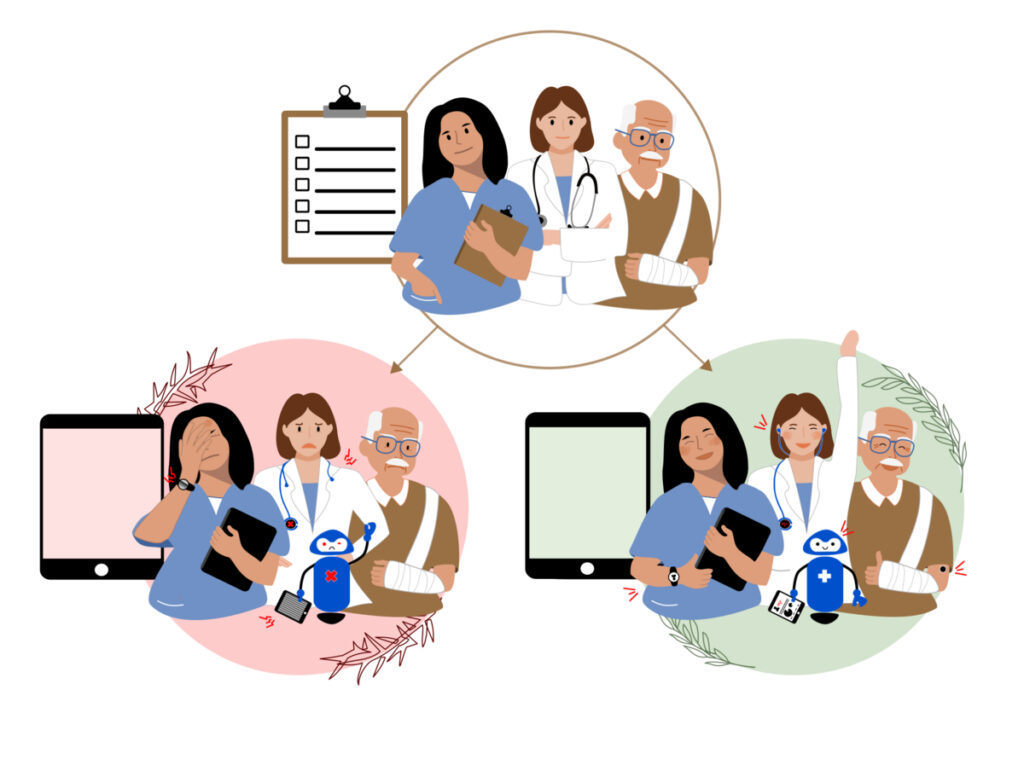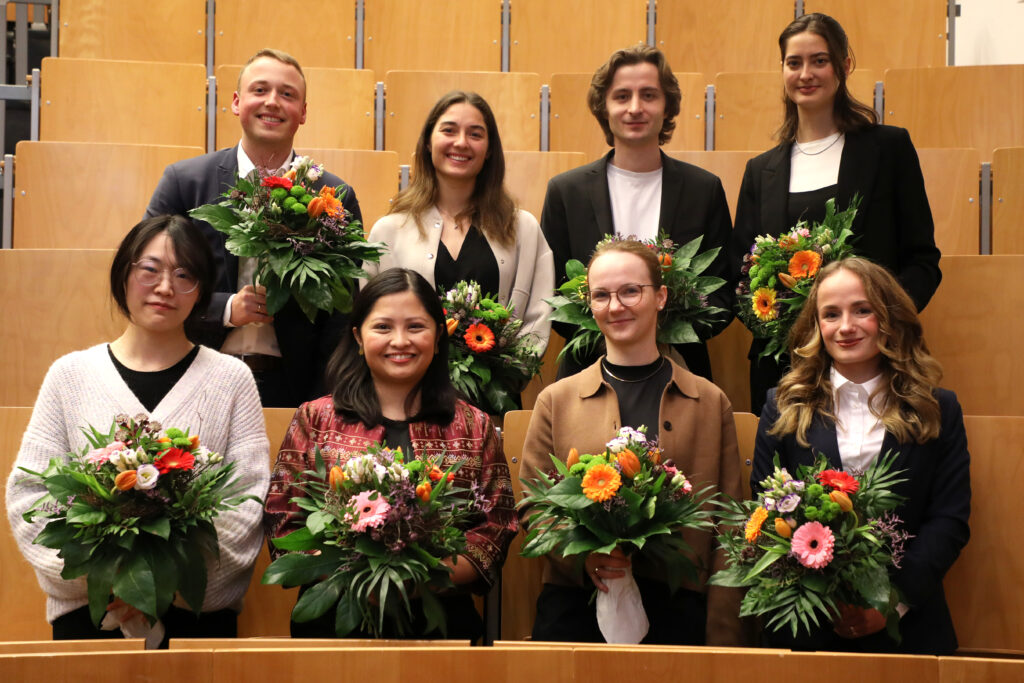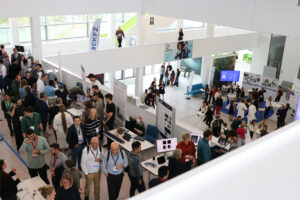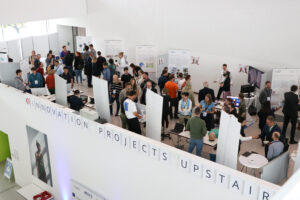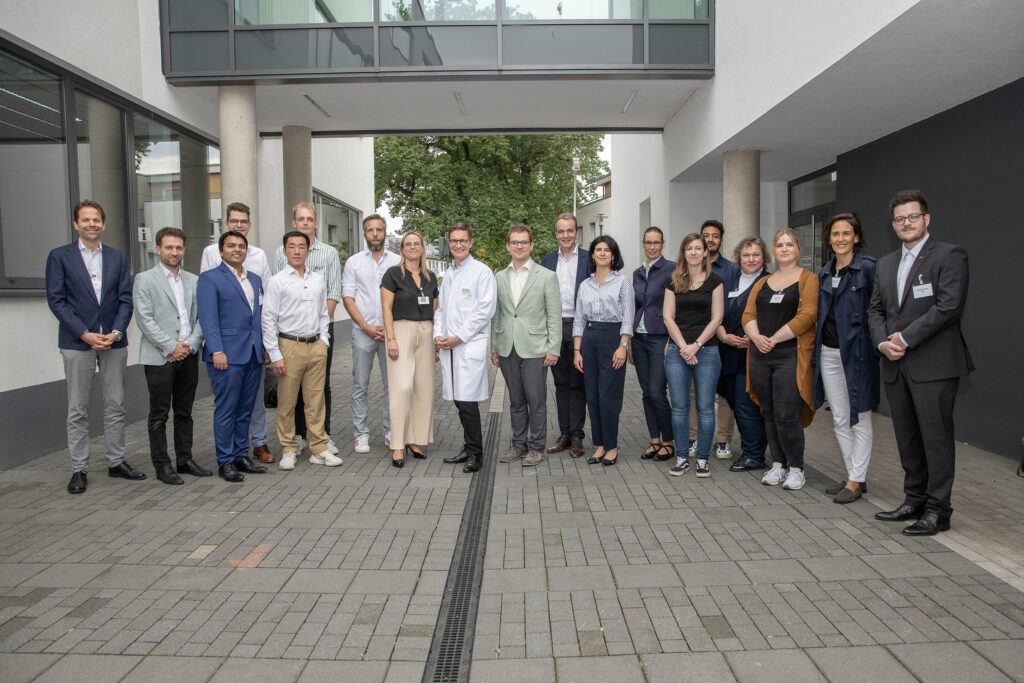
Today, the kick-off meeting for the launch of the Cancer Aid project DECADE – “Decentralised Artificial Intelligence for Diagnosis, Prognosis and Therapy Prediction in Colorectal Cancer” took place on the Venusberg campus of the University Hospital Bonn (UKB). German Cancer Aid is funding the joint project of several university hospitals with around 1.5 million euros for three years. With the help of artificial intelligence (AI), the care of colorectal cancer patients and the identification of hereditary colorectal cancer are to be improved.
Bowel cancer is a frequently occurring cancer. In Germany, about 26,000 women and 33,000 men develop colorectal cancer for the first time every year. Lynch syndrome, the most common hereditary cause of colorectal cancer, is diagnosed in about 300,000 people in Germany. However, only five to ten percent of those affected have been identified who could benefit from screening. As with all cancers, early diagnosis and the timely start of appropriate therapy is crucial. In the new interdisciplinary joint project DECADE, the UKB is conducting research together with the Else Kröner Fresenius Centre for Digital Health, the TU Dresden, the University Hospital Carl Gustav Carus Dresden, the University Hospital Heidelberg, the University Medicine Mainz and the University Hospital Düsseldorf to further optimise bowel cancer screening using AI.3
Data protection requirements complicate exchange
For the research project, the scientists need very large amounts of data from patients, which can be analysed in seconds with the help of AI and examined for specific patterns. “Within the framework of DECADE, it is essential for us to exchange data among the participating locations in order to achieve good and valid research results. Data protection requirements make this difficult, because data may only be processed at the place of collection. However, swarm learning enables us to process sensitive data in a securely protected way. In this way, we will also be able to better identify and understand hereditary colorectal cancer in the future and improve the prognosis as well as specialised treatment approaches without violating data protection regulations,” says Prof. Jacob Nattermann, Deputy Clinic Director of the Medical Clinic and Policlinic I for Internal Medicine at the UKB, who heads the clinical part of the National Centre for Hereditary Tumour Syndromes and the project at the UKB together with Dr. Robert Hüneburg.
Swarm learning enables data security and cooperation between the sites
Swarm learning is an innovative AI method in which the participating clinic locations can initially have their respective findings evaluated independently of each other with the help of AI. In a further step, only the respective findings, which no longer allow any conclusions to be drawn about personal patient data, are exchanged among the project partners and again analysed using AI. Using data from over 5,000 patients, the researchers have already been able to show that AI can predict survival, the risk of metastasis, the response to treatment and the immune system’s response to an intestinal tumour on the basis of tissue samples. The findings have already been published in the renowned journal “Nature Medicine”. Now the scientists, who are funded by German Cancer Aid, want to explore further clinical applications for this technology.
Improving the situation for patients
Nicola Reents, from Semi-Colon, the network for people with Lynch syndrome and hereditary colorectal cancer, which participated in the research proposal, is optimistic about the prospect of the new, promising possibilities for early detection and treatment: “Today, Lynch syndrome is still far too often overlooked. The swarm learning approach offers a huge opportunity here: to increase medical understanding and thus improve the targeted treatment of sufferers.”
About the project:
The DECADE – Decentralised Artificial Intelligence for Diagnosis, Prognosis and Therapy Prediction in Colorectal Cancer research project is funded by German Cancer Aid with around 1.5 million euros for three years (2023-2026). The project partners are the university hospitals in Bonn, Mainz, Düsseldorf, Heidelberg and Dresden, with the head of the network Prof. Jakob Kather. The aim of the research project is to improve the treatment of colorectal cancer patients with the help of artificial intelligence and swarm learning.
Partner:
- University Hospital Bonn, Medical Clinic and Polyclinic 1, National Centre for Hereditary Tumour Syndromes
- University Hospital Düsseldorf, Clinic for Gastroenterology, Hepatology and Infectiology
- Else Kröner Fresenius Centre for Digital Health, TU Dresden, University Hospital Carl Gustav Carus Dresden
- Heidelberg University Hospital, Institute of Pathology, Department of Applied Tumour Biology
- University Medical Center Mainz, Institute of Pathology
More News
Carl Gustav Carus Awards for three EKFZ affiliated young researchers
Virtual companions, real responsibility


